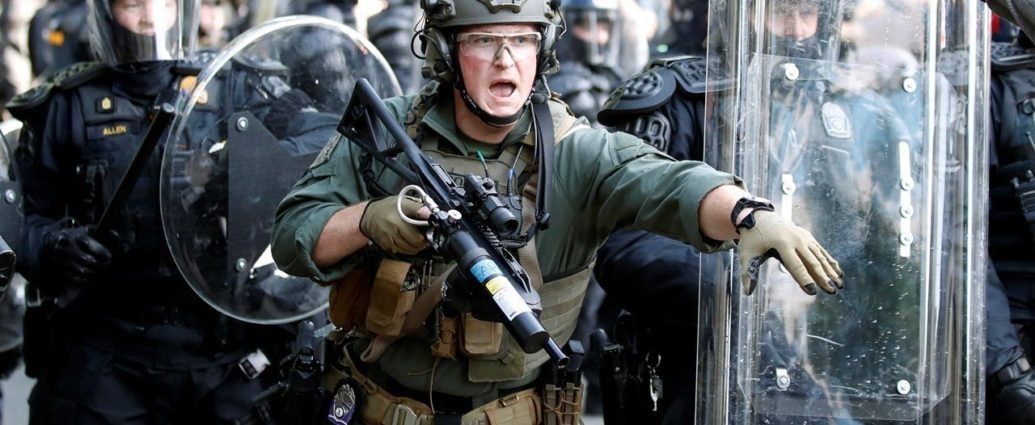WHAT IS “MARTIAL LAW” YOU SHOULD WANT TO KNOW

In simple terms, martial law is the replacement of civil rule with temporary military authority in a time of crisis. While its imposition is rare, the United States does have several noteworthy instances where martial law came into play, including in times of war, natural disasters and civic disputes.
Though there is no precise definition of martial law, the precedent in the United States holds that under it, “certain civil liberties may be suspended, such as the right to be free from unreasonable searches and seizures, freedom of association, and freedom of movement. And the writ of habeas corpus [the right to a trial before imprisonment] may be suspended,” according to a legal journal.
Martial law can be declared by both the president and by Congress. The governor of a state may also declare martial law if it is included in that state’s constitution. However, Congress has never solely imposed it.
During the War of 1812, then-Gen. Andrew Jackson imposed martial law within his encampment at New Orleans, which he had recently liberated.
“Notorious examples include Franklin D. Roosevelt’s internment of U.S. citizens and residents of Japanese descent during World War II and George W. Bush’s programs of warrantless wiretapping and torture after the 9/11 terrorist attacks,” the Atlantic reported. “Abraham Lincoln conceded that his unilateral suspension of habeas corpus during the Civil War was constitutionally questionable, but defended it as necessary to preserve the Union.”
But martial law is not without limits. The Posse Comitatus Act, passed on June 18, 1878, stopped federal troops from supervising Confederate state elections during Reconstruction. It originally applied only to the Army, but has since been amended to include the Defense Department and the other service branches. That act essentially prohibits troops from carrying out domestic law enforcement actions such as searching and seizing property and dispersing crowds. National Guard units, however, as they operate under state-rule, are exempt from the Posse Comitatus Act.
In extreme circumstances, there is an exception: the Insurrection Act, which allows the use of active-duty or National Guard troops for federal law enforcement in cases when “rebellion against the authority of the U.S. makes it impracticable to enforce the laws of the U.S. by the ordinary course of judicial proceedings,” according to U.S. Northern Command.
One of the more relevant cases, at least as it may pertain to National Guard units being called up to aid in the coronavirus pandemic, is that of the John Warner National Defense Authorization Act for Fiscal Year 2007. The bill, signed into law in 2006, gave the president the power to take command of National Guard units under the guise of martial law without the approval of state governors until its expiration a year later, creating a precedent for such action.
There’s the fear of the military showing up at your door to take your guns. This is why Second Amendment supporters are so against the registering of guns.
If all of the above occurs and chaos ensues, people will freak out. If there are food rations and someone feels like they deserve more food, where do you think they will go for that?
Burglaries, robberies, violence have the potential to get out of control and if someone comes to my house to try to take food out of my babies’ mouths, they will damn sure be met with my unregistered assault rifles.
We have the Second Amendment so that our citizens can protect themselves from tyranny. And this, my friends, is what we are looking at. But it’s not because of the military.
People who occupy both the far-left and the far-right end of the spectrums are taking to the internet and posting doomsday concerns for the enactment of martial law.
“Hide your guns!” they say. “You’re never going to see your family again!” they cry. “We are going to die!’ they posit.
Well, yes actually. If you are a tyrant, if you take to the streets and loot and riot when the military is doing its best to keep our communities safe and prevent the spread of this virus, then yes. You may get your guns taken away for everyone’s safety.
You may never see your family again. You may die. But really isn’t that true of any violent criminal?
